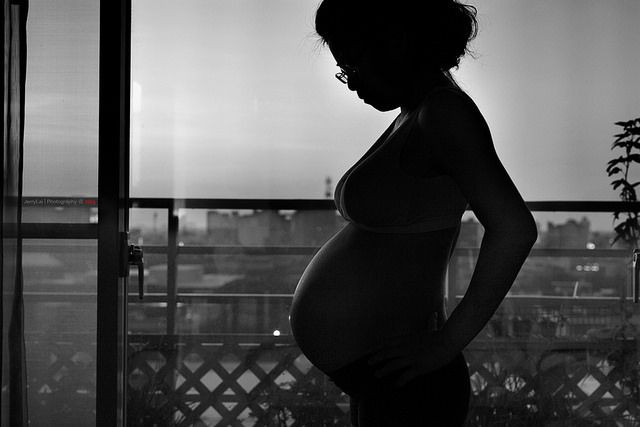Antidepressant Use Before Or During Pregnancy Not Linked To Later Congential Heart Defects

New research published Wednesday in the Journal of Clinical Psychiatry is fueling further debate on an already controversial topic — antidepressant use during pregnancy.
Unlike an earlier December study that found a small link between the use of antidepressants, (specifically selective serotonin reuptake inhibitors, or SSRIs), and autism, this latest effort has concluded the opposite when it comes to the development of congenital heart defects. Analyzing the medical records of more than 200,000 mother-child pairs, the researchers found no difference in heart defect risk between women given SSRIs or other antidepressants before or during pregnancy and women not given any at all.
"Women often receive conflicting messages on whether they should continue taking antidepressants during pregnancy and many women may discontinue antidepressants in pregnancy because they fear adverse effects on their unborn child. Our research adds to the ongoing debate on whether these drugs cause congenital heart anomalies, and we have found no evidence to any such effect,” said lead author Dr. Irene Petersen of University College London in a statement. “However, health care professionals should counsel women on other risks contributing to congenital heart anomalies in children such as age, weight, diabetes, alcohol problems and illicit drug use."
Petersen and her colleagues conducted their comparative study by poring through the medical histories of children born to women enrolled in the UK’s The Health Improvement Network (THIN) primary care database from 1990 to 2011. They then set up four contrasting groups of expectant mothers: Women who used SSRIs before pregnancy, (5,154 in total), women who used SSRIs during pregnancy, (2,776), women who used other antidepressants during pregnancy, (992), and women who weren’t prescribed any antidepressants before or during pregnancy, (200,213).
The absolute risk for congenital heart defects was less than 1 percent across all four groups. and antidepressant use during the first trimester alone wasn’t associated with a significantly greater increase in risk. Other factors, such as age, obesity, and a history of smoking or illicit drug use, were linked to a greater risk. The authors suggested that previous studies failed to take into account the fact that these factors are more common in depressed woman. Similar criticisms have since been made about the December study, along with accusations the researchers overreached with their conclusions.
Petersen and her team note depression during pregnancy itself has been tied to any number of later health problems in newborns, including being born premature.
"We know from a US study that up to 70 percent of pregnant women who stop an antidepressant have a recurrence of depression, which also can have major consequences,” she explained. “So it is important to consider both the pros and cons before women stop taking antidepressants.”
Source: Peterson I, Evans S, Gilbert R, et al. Selective Serotonin Reuptake Inhibitors and Congenital Heart Anomalies: Comparative Cohort Studies of Women Treated Before and During Pregnancy and Their Children. Journal of Clinical Psychiatry. 2016.



























